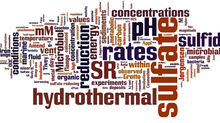NIH COBRE grant fuels pioneering research linking environmental microbiomes to human health
- Dec 1, 2019
- 3 min read
Excitement is buzzing at the Pacific Biosciences Research Center (PBRC) as we announce the groundbreaking strides being made by a cohort of junior faculty under the mentorship of Margaret McFallNgai and Edward Rub, thanks to the generous support from the National Institutes of Health Centers of Biomedical Research Excellence (COBRE). This monumental grant marks a pivotal moment in our journey, as it funds the very first center dedicated to unraveling the fascinating interplay between environmental microbiomes and human health.
At the forefront of this pioneering initiative is a dynamic team of young researchers, each a force to be reckoned with, has united in a Herculean effort to secure this prestigious five-year grant. Together, they are embarking on an exhilarating quest to explore the dynamic realm where the microscopic world of microbes intersects with the vast canvas of human health. Let's meet these scientific trailblazers and delve into their captivating projects:
1. Kiana Frank: At the helm of our journey, Dr. Kiana Frank is delving into the mysteries of land use patterns and environmental factors, seeking to understand their influence on the diversity, abundance, virulence, and persistence of waterborne microbial threats in Hawaiian watersheds. With dedication and passion, she's uncovering vital insights that will safeguard our precious Hawaiian ecosystems.
2. Matthew Medeiros: Another bright star at PBRC, Matthew Medeiros is on a mission to understand how microbes colonize mosquitoes in their natural habitat and how this colonization pattern might impact disease transmission. His work promises to shed light on innovative strategies for mosquito-borne disease control.
3. Floyd Reed: Floyd Reed, an associate professor in the Department of Biology, is investigating the intriguing relationship between mosquitoes and their normal microbiota, particularly focusing on the bacterium Wolbachia. His research has the potential to revolutionize our approach to curbing the carriage of human pathogens by mosquitoes.
4. Joanne Yew: Joanne Yew, an assistant professor at PBRC, is harnessing the power of the genetic model Drosophila (small fruit flies) to explore the intricate interplay between genetics and the environment. Her work holds the key to unraveling the complex mechanisms that shape life on a genetic level.
5. Masato Yoshizawa: Assistant professor in the Department of Biology, Masato Yoshizawa is unraveling the enigma of how microbiomes influence autism behavior. His groundbreaking research aims to illuminate the path to a deeper understanding of this complex condition.
COBRE researchers and their dedicated students are tackling two pressing health challenges that are inextricably linked: the deteriorating environment and the alarming spread of diseases. This dual focus is poised to make a profound impact on both local and global scales.
But our commitment to our community doesn't stop at the laboratory door. We recognize the importance of outreach to the Native Hawaiian community, and it's an integral part of our COBRE grant mission. Dr. Kiana Frank, a Native Hawaiian herself, expresses her deep excitement about this grant, emphasizing how it aligns perfectly with traditional ideals of "management from mauka to makai," a holistic approach that assesses all layers of management and their influence on the entire ecosystem, from microbes to people. In this exciting journey of discovery, the future is brimming with promise, and we invite you to join us in exploring the uncharted territories of microbiome and health. Together, we are unlocking the mysteries of life and health, one breakthrough at a time. Stay tuned for more exhilarating updates from Dr. Kiana Frank's professional lab website!




















Comments